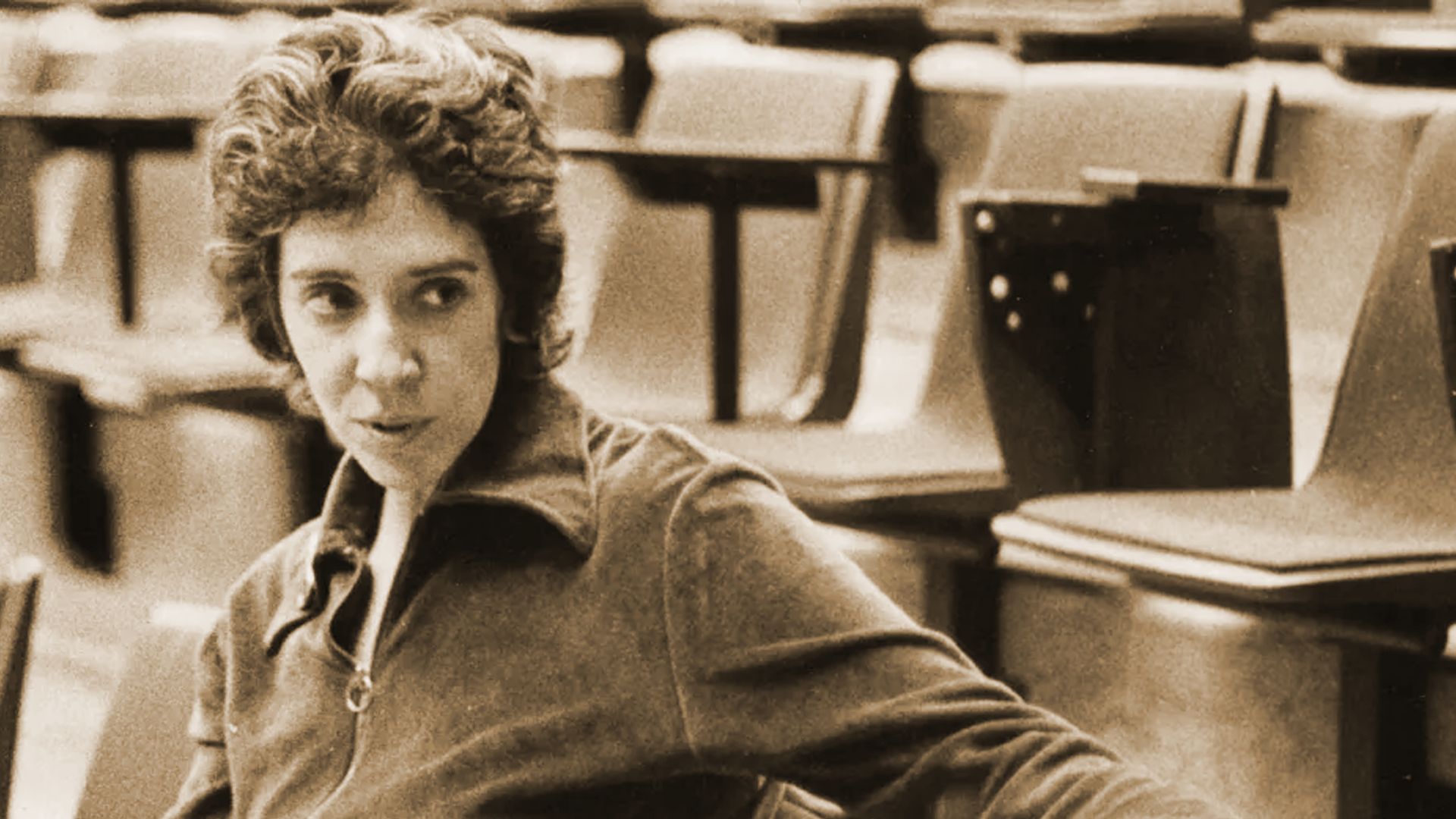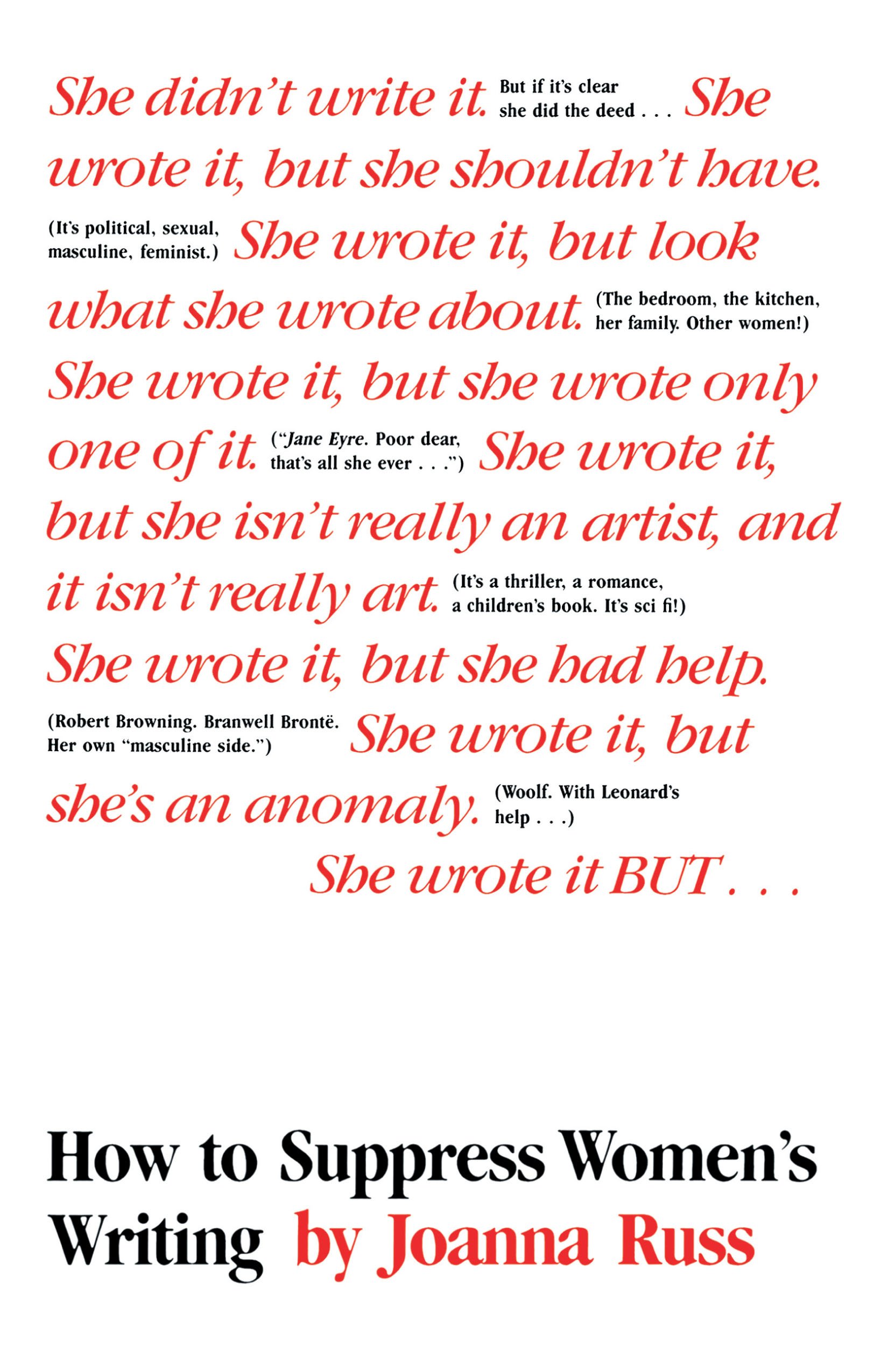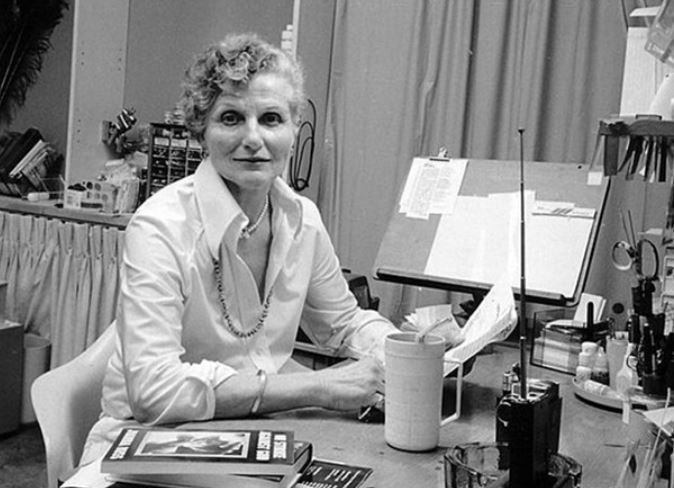
The Radicalist: Joanna Russ
"There are plenty of images of women in science fiction. There are hardly any women."
— Joanna Russ
Joanna Russ is an inescapable figure in science fiction history and she is one of the most revolutionary and accomplished writers in science fiction. Russ is the author of the landmark science fiction The Female Man. Alongside other award-winning science fiction, she also wrote feminist literary criticism such as How to Suppress Women’s Writing, as well as a novel and a children’s book.

Joanna Russ was born in 1937, in the Bronx, New York. She developed an interest in exotic flora and fauna by spending much of her childhood in Bronx Zoo and the Botanical Gardens.[1] When she was a teenager, Russ read science fiction because it promised a world “where things could be different,” and sold her first science fiction story, “Nor Custom Stale,” while still in graduate school.
Russ went to Cornell University studied literature and earned her Master's degree in Yale School of Drama in playwriting in 1960. She was an English professor teaching subsequently at Cornell, SUNY Binghamton, the University of Colorado at Boulder, and the University of Washington.
As a radical feminist, Joanna Russ is famous for her creatvity of anger. Well-known science fiction writer, James Tiptree Jr, in a letter to her, wrote,
"Do you imagine that anyone with half a functional neuron can read your work and not have his fingers smoked by the bitter, multi-layered anger in it? It smells and smolders like a volcano buried so long and deadly it is just beginning to wonder if it can explode”.[2]

In her late years, in 1995, In the introduction of Clare Fraser’s book, Revolution, She Wrote, she confirmed her new direction as a feminist:
“I came to this conclusion only a few years ago, after 23 years of feminist activism, work and study. I came to a whole host of related conclusions, too: that single-issue activism is a dead end, that class, sexism, and racism depend upon each other, and that the feminism which doesn’t understand this will inevitably decay into careers-for-well-to-do white ladies.”[3]
[1] “Joanna Russ,” NNDB, https://www.nndb.com/people/553/000029466/
[2] "Guide to the Joanna Russ Papers, 1968–1989". Northwest Digital Archives. Retrieved March 20, 2011.
[3] Clare Fraser, Revolution, She Wrote (Washington: Red Letter Press, 1998), Introduction.